We’re more than six months removed from the launch of the iPhone 15 and iPhone 15 Pro, so you know what that means: iPhone 16 rumors are in full force. Talk is heating up about everything from design leaks and rumored specs to camera changes and more.
We’re expecting some bigger changes with the iPhone 16 than we got with the iPhone 15, so we’ve rounded up all the major rumors and reports here for you. Let’s dig in.
iPhone 16: release date
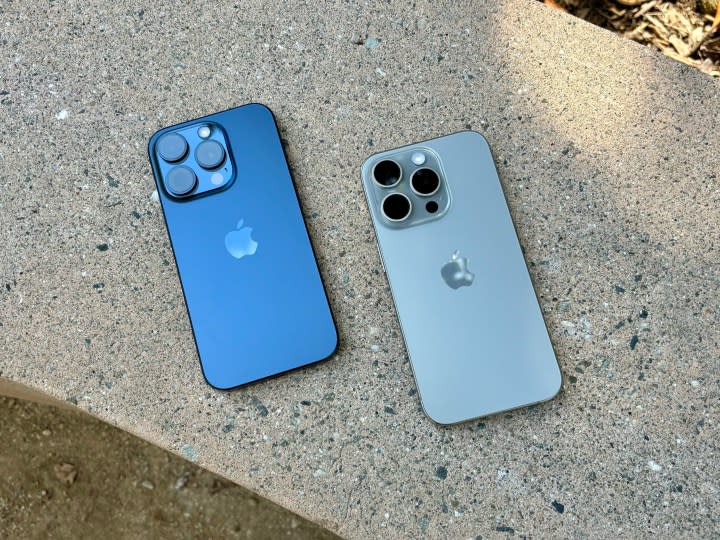
Like most iPhone releases, Apple is expected to announce and release the iPhone 16 lineup sometime this fall.
Unless there’s some kind of delay, as in 2020, where the iPhone 12 launched in October, it’s a pretty safe bet that we should see the iPhone 16 and iPhone 16 Pro models in September. Things can always change, but this is what we anticipate right now. Unless we hear otherwise, expect a September 2024 release date for Apple’s next iPhones.
iPhone 16: price


Though it was expected that the iPhone 15 lineup would have a price increase, that didn’t happen aside from the iPhone 15 Pro Max model, which now starts at $1,200 for the 256GB version (there is no longer a 128GB variant). That was the only one in the iPhone 15 lineup that saw a “price increase,” if you want to call it that.
The iPhone 15 component prices were at the highest for Apple, though it absorbed those increased production costs. But that may not happen in 2024, so we may see a slight increase for all iPhone 16 models.
How much of a possible increase has yet to be seen.
iPhone 16: design
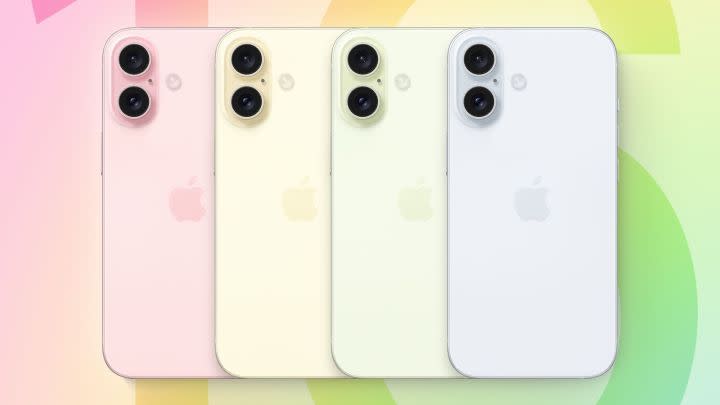

There will be some big changes coming for the iPhone 16 lineup, most notably the standard iPhone 16 and iPhone 16 Plus.
Earlier reports from MacRumors suggested three different prototype designs for the iPhone 16, but the most recent leak seems to confirm which one we are getting.
For the iPhone 16 and iPhone 16 Plus, Apple is departing from the diagonal camera layout that it has been using for the past few years. Instead, it’s going with the vertical pill-shaped camera island, similar to what we first saw on the iPhone X, except a bit bigger due to the lenses and sensors.
Though it’s likely that the rest of the profile of the standard iPhone 16 models will remain unchanged, there is a possibility it may get an Action button, according to earlier reports.
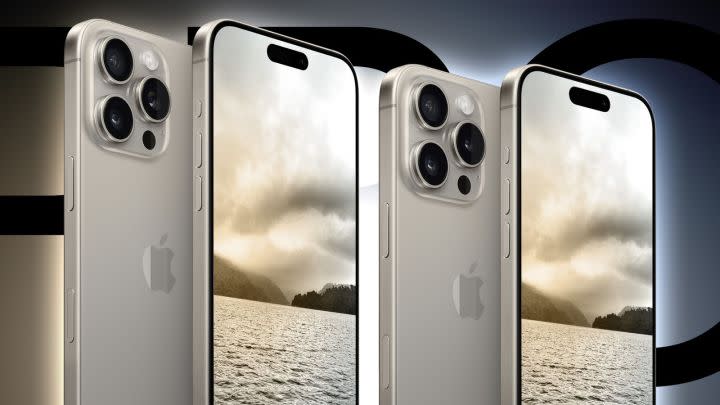

Any design changes for the iPhone 16 Pro and iPhone 16 Pro Max may be less drastic, as Apple seems to be pretty content with the changes it introduced with the iPhone 15 Pro.
Reports have suggested that this new Capture button will be capacitive rather than physical, and it will sit flush with the phone’s frame. Since it is rumored to be a “capture” button, it will most likely be able to act as a camera shutter button, though it could also be customizable like the Action button.
In order to accommodate this new capacitive button, the wireless antenna will be relocated to the other side. The Action button may also be larger on the iPhone 16 Pro models compared to the current iPhone 15 Pro.
Although iPhone design changes are never confirmed until Apple shows off the phone itself, it looks like these rumors have some weight to them. In early April, well-known Apple leaker Sonny Dickson shared photos of iPhone 16 and iPhone 16 Pro dummy models — reiterating all of the design changes mentioned above.
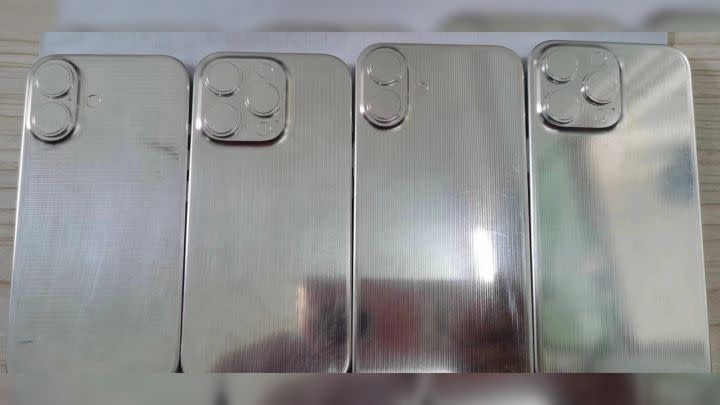

A YouTube channel called EFTM received some metal dummy units of what appears to be the iPhone 16, iPhone 16 Plus, iPhone 16 Pro, and iPhone 16 Pro Max. Dummy units are important for case and accessory manufacturers because they make their accessories based on these units so that they are available in time for the actual product launch. The dummy units that EFTM has received appear to confirm the vertical camera modules for the iPhone 16 and iPhone 16 Plus.
However, there is a notable detail on all of the dummy units: the Action and Capture buttons. Both of these buttons could show up across the entire iPhone 16 lineup. Previous rumors hinted at the Action button coming to the standard iPhone 16 models, but the Capture button was previously reported to be only on the Pro models. Assuming these models are accurate, that appears to be changing.
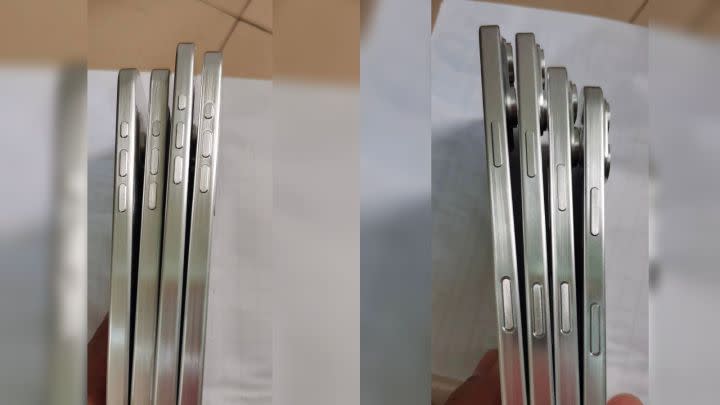

Since the Capture button will be located on the phones’ bottom right edge, it’s another indication that Apple could be removing the physical SIM card completely in other countries. Apple moved to eSIM-only in the U.S., starting with the iPhone 14 line, and now it looks like that change could be coming to other parts of the globe.
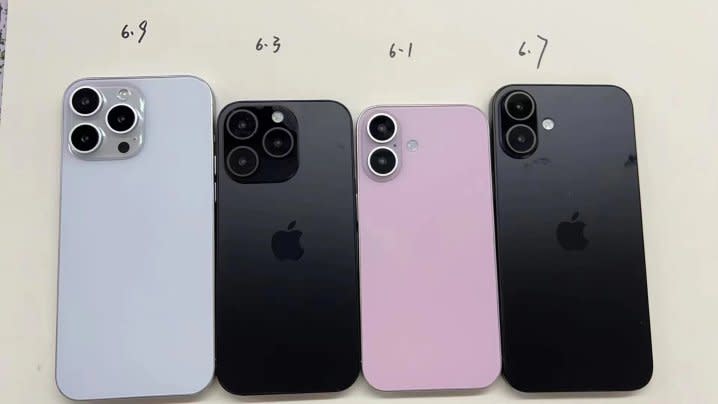

Speaking of dummy units, more of them leaked in late April when Sonny Dickson uploaded the above photo to X (formerly Twitter). These particular dummies are more complete-looking ones and provide an even clearer view at what this year’s iPhone lineup should look like.
More recently, some leaked molds appeared online from ShopSystem. The molds show the MagSafe charging ring being slightly smaller in the iPhone 16 models when placed side-by-side with the iPhone 15 models. If accurate, it suggests that Apple has tried to slim down the MagSafe components to reduce the magnetic material required, though the overall position of the magnets hasn’t changed. That’s a good thing because it means that older MagSafe accessories should continue to work with the new models.
According to the latest rumors from a Weibo leak, the standard iPhone 16 lineup may come in seven colors: pink, blue, yellow, green, black, white, and purple. The iPhone 16 Pro will be using titanium again, but the “Blue Titanium” color may be dropped in favor of a “Space Black” color.
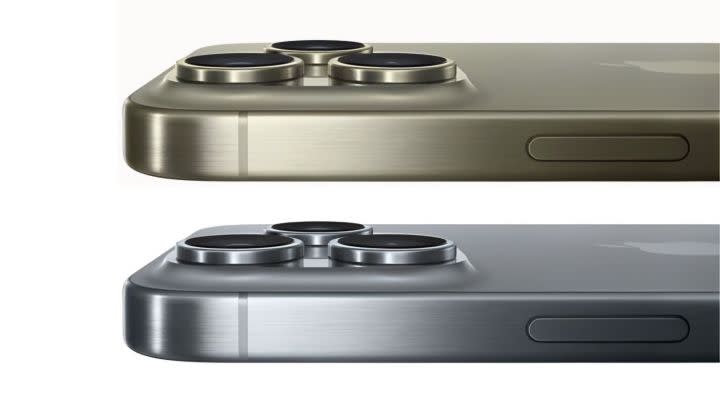

There may also be a “Natural” and “White Titanium” color, but they’ll be slightly different than previous years. White Titanium will be more silver-white, while Natural will have a gray tint to it. Finally, there’s a new rumored “Rose” color, which may overlap with the earlier rumor about a “Desert Titanium” color and would be similar to gold. Furthermore, the iPhone 16 Pro is rumored to have a new and improved process for finishing and coloring titanium, giving it a more polished brushed finish compared to the iPhone 15 Pro models.
Apple is also upgrading the microphones on the iPhone 16 lineup to have a higher signal-to-noise ratio than previous iterations. This means the device will be able to hear you more clearly, which could help with Siri requests. With reports suggesting iOS 18 will have more generative AI features, a more accurate Siri would be much needed.
iPhone 16: displays
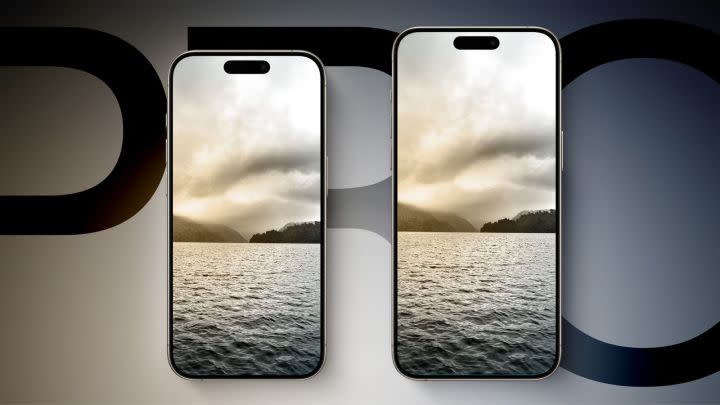

There may be some changes coming for the display sizes of the iPhone 16 Pro models. However, the standard iPhone 16 variants will stay the same.
The iPhone 16 Pro display may be increased to 6.3 inches, up from the current 6.1 inches. The larger iPhone 16 Pro Max will be 6.9 inches rather than 6.7 inches.
With the smaller iPhone 16 Pro getting a bump in size, this will make it possible to fit a larger telephoto camera lens in it, allowing for the 5x optical zoom that debuted in the iPhone 15 Pro Max. Due to size constraints of the 6.1-inch size, the tetraprism lens wasn’t able to fit, but a 6.3-inch chassis can change that.
Apple will be shrinking bezels across the board, though the real benefits will be more obvious on the Pro models. A new report has surfaced revealing that Apple is using a new display technology called Border Reduction Structure (BRS), which lets suppliers reduce the size of those black borders around the screen.
We could also get brighter displays and more efficient power consumption, as Apple is reportedly using microlens technology in the iPhone 16 OLED panels.
Lastly, a report from The Elec suggests that the iPhone 17 line will mark the first time that all of the models, including the base ones, will use LTPO OLED panels with ProMotion and always-on screens. In other words, the base model iPhone 16 and iPhone 16 Plus should still have a 60Hz refresh rate display, unfortunately.
iPhone 16: specs
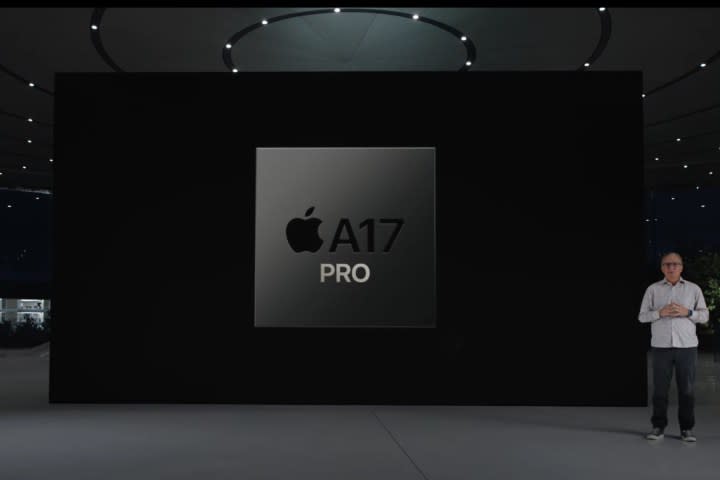

For the base model iPhone 16 and iPhone 16 Plus, we should see an A17 chip. However, this may not be the same A17 Pro chip that is currently inside the iPhone 15 Pro and iPhone 15 Pro Max. Apple is likely to use a lower-cost process for a standard “A17” chip that could make its way to the standard iPhone 16 models.
Analyst Jeff Pu thinks that Apple will go a different route and simply use A18 and A18 Pro names for the new chips. This would mean that all iPhone 16 models would have some variation of an A18 chip rather than going with an A17, which could be seen as a “last generation” chip.
While overheating was an issue with launch-day iPhone 15 models, it is said that Apple has worked on a new thermal design to help with heat dissipation. This could be in the form of a graphene thermal system for the base iPhone 16 models, while the iPhone 16 Pro might have a metal battery casing. Right now, the iPhone uses copper for the heat sinks, but graphene has higher thermal conductivity.
There have been rumors that Apple has been working on its own in-house 5G modem chips, but that won’t happen in 2024. Instead, the iPhone 16 Pro may use Qualcomm’s Snapdragon X75 modem for faster and more efficient 5G connectivity. However, the base-model iPhone 16 will continue to use the Qualcomm X70 chip that is currently in the iPhone 15. The iPhone 16 could also have Wi-Fi 7 technology that could get at least 30 gigabits per second, up to 40Gb/s.
iPhone 16: cameras
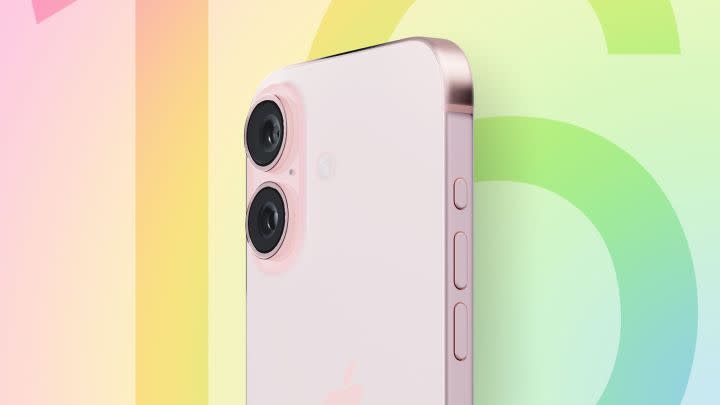

As mentioned earlier, the iPhone 16 and iPhone 16 Plus will have a dual camera layout presented in a vertical pill-shaped camera island. The iPhone 16 Pro and iPhone 16 Pro Max appear to have the same triple-lens camera layout as has been used in the past few years.
Though the base models will have a different camera layout, the camera specs don’t appear to have been upgraded. However, that’s not the case for the Pro models.
This year, Apple could upgrade the ultrawide lenses on the iPhone 16 Pro and iPhone 16 Pro Max to a 48-megapixel sensor — a big jump from the current 12MP on the iPhone 15 Pro. If this is the case, then ultrawide shots will have more detail, especially in lowlight environments. The iPhone 16 Pro Max may also receive improvements in all three lenses, as it will have two glass elements and six plastic elements for each.
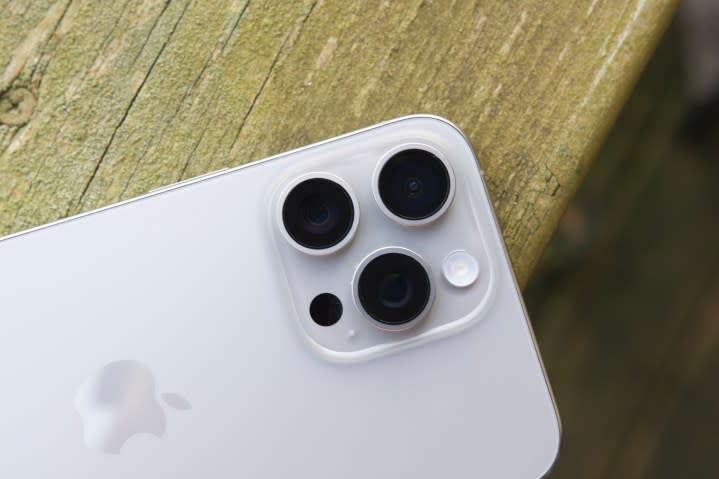

Those who prefer the smaller Pro model will have a good chance of getting a camera upgrade this year, too. Since the iPhone 16 Pro will have a larger 6.3-inch display, there will be enough room to fit the tetraprism camera into the chassis, allowing for 5x optical zoom capabilities — a nice upgrade over the 3x optical zoom offered by the iPhone 15 Pro.
The lenses on the iPhone 16 Pro and iPhone 16 Pro Max could also be seeing an improved lens coating that uses atomic layer deposition (ALD), according to a leaker by the name of yeux1122. With ALD, Apple would have even more control over the thickness and composition of the coating since the process involves applying one atomic layer at a time. This can help fine-tune the camera lens stack without adding any extra bulk.
But what does that mean in practical terms? Essentially, the ALD coating will help reduce digital artifacts in photos, such as lens flare and halos, when direct sunlight is involved. And fast-moving objects will have reduced ghosting. It also means some extra protection for the camera lens, improving durability.
iPhone 16: battery life
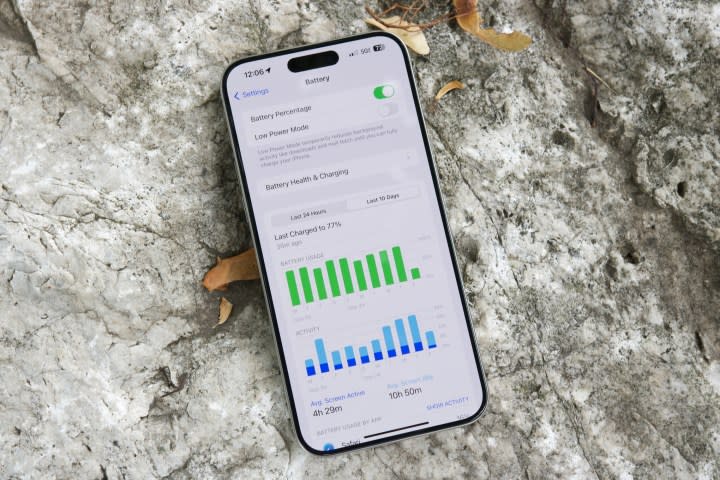

We may finally see some better battery life with the iPhone 16 Pro models, as it’s rumored to use stacked battery technology. With stacked batteries, it can result in higher capacity and longer lifespans. This may also bring faster 40W wired and 20W MagSafe charging speeds.
Charging speed has long been an area where Apple has lagged behind its competitors. If the iPhone 16 really does address this, we could be in for a proper treat.
According to @MajinBuOfficial, we also have a good idea of what to expect from the batteries in the entire iPhone 16 lineup, with changes across the board. The leaker claims that the iPhne 16 and iPhone 16 Pro Max will have larger batteries than their predecessors, however, the iPhone 16 Plus will get the short end of the stick and actually have less battery capacity than before. The Pro Max model will also no longer use the L-shaped battery design and will go back to a rectangular shape like with the iPhone 16 and 16 Plus.
So far, it looks like the standard iPhone 16 will have 3,561 mAh (up from the iPhone 15’s 3,349 mAh), the iPhone 16 Plus is 4,006 mAh (down from the iPhone 15 Plus’ 4,383 mAh), and the iPhone 16 Pro Max will be 4,676 mAh (up from the iPhone 15 Pro Max’s 4,422 mAh). For some reason, there is no information about the possibility of the iPhone 16 Pro. But this is all speculation from @MajinBuOfficial, who has a mixed record with Apple leaks.
iPhone 16: software and updates
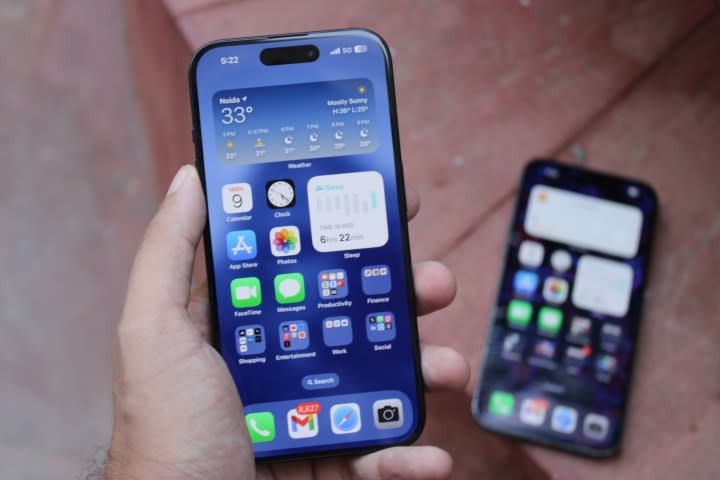

Since Apple’s Worldwide Developer Conference (WWDC) will begin June 10 and the iPhone 16 lineup will arrive in the fall, we can expect iOS 18 to launch alongside the iPhone 16.
Though most other tech companies have been investing heavily in AI, Apple has largely remained quiet. But this may all change with iOS 18 and Siri, as Apple has been working on beefing it up with smarter AI that is powered by large language models (LLM). While Apple could bring new LLM features to all iPhones, some will likely remain exclusive to the iPhone 16 line.
Some of the possible AI features include improved interactions with Siri and Messages, better Apple Music playlists that are automatically generated, integration with productivity apps, and more. There’s also a rumor about improvements to the microphone that will go along with the improved AI-powered Siri experience, such as improved water resistance and better signal-to-noise ratio.
Source Agencies



